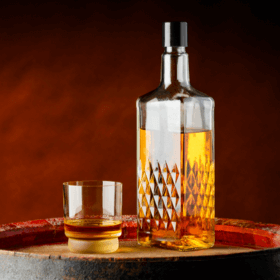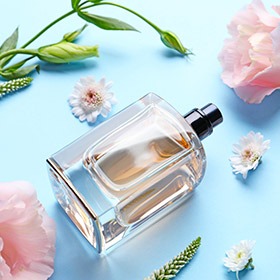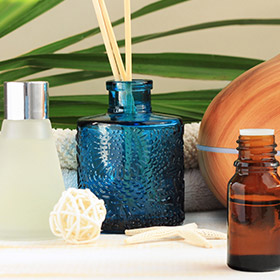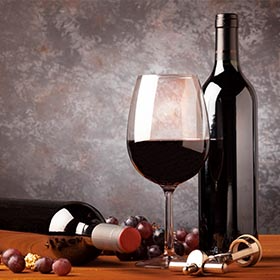Introduction
In the dynamic and ever-evolving beverage industry, packaging plays a pivotal role which is far beyond mere containment. It is the first point of interaction between a product and its consumer, a silent ambassador that communicates brand values, ensures product integrity, and significantly influences purchasing decisions. Among the diverse options available, glass beverage bottles have maintained their relevance and superiority for centuries. From preserving product integrity to reinforcing premium brand perception, glass is often the material of choice for beverage manufacturers, distributors, and retailers worldwide.
This article explores the multifaceted advantages of beverage glass bottles, contrasting them with other common packaging materials, highlighting their technical strengths, and discussing real-world applications. Our discussion is tailored for glass bottle and jar retailers, wholesalers, and all stakeholders within the beverage industry and distribution networks who seek optimal packaging solutions.
Glass vs. Other Packaging Materials
For large, medium, and small beverage companies, choosing the right packaging material is crucial. It not only influences the company’s image but also affects the product’s taste and flavor, shelf life, environmental impact, and ultimately, consumer perception. In today’s market, paper, plastic, and aluminum materials are widely used. However, glass stands out as a more cost-effective option, particularly for beverages that emphasize purity, taste, and a premium appearance.
Glass vs. Plastic
Plastic gained widespread adoption due to its lightweight nature, cost-effectiveness, and shatter resistance. However, the disadvantages of plastic packaging for beverages are increasingly evident and concerning. Plastics are known to leach chemicals, such as antimony and phthalates, into their contents, particularly when exposed to heat or over extended periods. This chemical migration can compromise the taste and purity of the beverage, and raise health concerns for consumers. Furthermore, plastic is permeable to gases, meaning that oxygen can enter and carbon dioxide can escape, leading to oxidation and loss of carbonation, thereby diminishing the product’s freshness and flavor over time. From an environmental perspective, plastic pollution is a global crisis, with vast quantities accumulating in landfills and oceans. While some plastics are recyclable, the process is often complex, and the material degrades with each recycling cycle, limiting its reusability. According to the UN Environment Programme, about 400 million tons of plastic waste is generated globally each year, and only 9% is recycled. In stark contrast, glass is chemically inert, ensuring no interaction with the beverage, preserving its original composition and taste. It is also impermeable, offering superior barrier protection against external elements. Most significantly, glass is 100% recyclable, endlessly, without any loss of quality or purity, making it a truly sustainable choice for beverages in glass bottles.
Glass vs. Aluminum
Aluminum cans offer advantages in terms of being lightweight, durable, and recyclable. They are often favored for their portability and ability to block light entirely. While aluminum cans offer good protection and recyclability, they often require internal linings to prevent metal interaction with beverages. These linings can degrade over time and are not always recyclable. Moreover, the opaque nature of aluminum, while offering light protection, prevents consumers from visually appreciating the product, which is a significant aspect for premium glass beverage bottles like craft beers, artisanal juices, or high-end spirits.The aesthetic appeal and perceived quality of glass bottle beverages often surpass that of aluminum, contributing to a more premium brand image. While aluminum is recyclable, the energy required for its production from raw materials is substantial, and its recycling process, though efficient, still consumes energy.
Glass vs. Cartons or Paper Packaging
Cartons and paper-based packaging, often used for milk, juices, and some wines, are marketed for their convenience and perceived environmental benefits due to their renewable material source. However, these multi-layered materials, typically composed of paperboard, polyethylene, and sometimes aluminum foil, are notoriously difficult to recycle due to their composite nature. This complexity often leads to them ending up in landfills, undermining their sustainability claims. Their barrier properties, while adequate for some products, are generally inferior to glass, particularly concerning long-term oxygen ingress and flavor preservation. Cartons can also be susceptible to damage and do not offer the same level of rigidity and premium feel as glass. For products where visual appeal, purity, and a sophisticated presentation are crucial, such as glass bottles drinks or premium beverage glass bottles, cartons simply cannot compete with the clarity, elegance, and protective qualities of glass. The consumer experience associated with pouring from a substantial, clear glass bottle is often seen as more authentic and enjoyable.
Key Benefits of Glass Bottles in Beverage Packaging
Chemical Inertness and Flavor Preservation
One of the most significant advantages of glass is its chemical inertness. Unlike plastics or even some metals, glass is a non-reactive and non-leaching material. This means that when a beverage is packaged in glass, there is no chemical interaction between the container and its contents. The glass does not impart any flavors, odors, or chemicals into the liquid, nor does it absorb any from the beverage. This ensures that the original taste, aroma, and purity of the beverage are meticulously preserved from the moment it is bottled until it reaches the consumer’s palate. This characteristic is especially vital for sensitive beverages such as premium water, delicate craft beers, fine wines, fresh juices, and dairy products, where even the slightest alteration in chemical composition can compromise the intended sensory experience. For brands that pride themselves on the integrity and fidelity of their product’s flavor profile, beverages in glass bottles offer an unmatched guarantee of quality.
Case Example: Many high-end mineral water brands, such as Voss and Perrier, use glass bottle drinks to emphasize their natural purity and avoid off-flavors from plastic leaching.
Superior Barrier Protection: Extending Product Shelf Life
Preventing Oxidation: Oxygen is a primary enemy of many beverages, leading to oxidation that can negatively impact flavor, color, and nutritional value. For instance, beer exposed to oxygen can develop a ‘skunky’ taste, while fruit juices may lose their vibrant color and essential vitamins. Glass bottles create an airtight seal that minimizes oxygen ingress, thereby safeguarding the product’s freshness and extending its viability.
Maintaining Carbonation: When opening a new bottle of a soda beverage, the refreshing sensation of carbon dioxide (CO₂) bubbles enhances the overall mouthfeel and drinking experience. Glass packaging plays a critical role in preserving this effervescence. Thanks to its excellent impermeability, glass effectively traps CO₂ inside the bottle, preventing gas escape and maintaining optimal carbonation throughout the product’s shelf life. This is why carbonated soft drinks and sparkling water are frequently packaged in glass bottles.
Odor Barrier: Glass acts as an impenetrable barrier against external odors. This is particularly important in storage and transportation environments where various products with strong scents might be present. By preventing odor absorption, glass ensures that beverages remain untainted and deliver the intended aromatic experience to the consumer.
UV Protection: The Wisdom of Colored Glass
While clear glass offers visual appeal, certain beverages require protection from ultraviolet (UV) light, which can cause significant degradation. UV light can break down light-sensitive components such as vitamins, natural pigments, and hop compounds, leading to undesirable changes in flavor, color, and nutritional content. A classic example is beer, which can develop a ‘skunky’ flavor when exposed to UV light, a phenomenon known as ‘lightstruck.’ Similarly, milk can lose essential vitamins when exposed to light.
This is where the wisdom of colored glass comes into play. Amber, green, and blue glass bottles are specifically designed to filter out harmful UV rays, providing a natural and effective protective shield for light-sensitive beverages. Amber glass, for instance, is highly effective at blocking UV light and is widely used for beers and other products susceptible to light degradation. Green and blue glass also offer varying degrees of UV protection while providing distinct aesthetic qualities. This strategic use of colored glass underscores the versatility and protective capabilities of glass beverage bottles.
Sustainability and Recyclability
100% Recyclable: Glass is unique in that it can be recycled endlessly without any loss of quality, purity, or structural integrity. A glass bottle can be recycled into a new glass bottle repeatedly, closing the loop on its lifecycle. This contrasts sharply with materials like plastic, which degrade with each recycling cycle.
Resource Conservation: Recycling glass significantly reduces the need for virgin raw materials (sand, soda ash, limestone) and consumes less energy compared to manufacturing new glass from scratch. This translates to a smaller carbon footprint and reduced environmental impact.
Reusability: Beyond recycling, glass bottles possess inherent reusability. Many beverage companies and consumers are embracing systems where glass bottles can be washed, sterilized, and refilled multiple times. This practice further minimizes waste and maximizes the lifecycle of the packaging, making wholesale glass beverage bottles an attractive option for businesses looking to implement circular economy principles.
Industry Statistics: The Continued Growth of Glass Packaging
Market Trends
According to Statista, the global glass packaging market was valued at over USD 56 billion in 2023 and is expected to exceed USD 70 billion by 2028, driven by increasing demand in the food and beverage sectors. This growth is driven by health-conscious consumers, plastic bans, and green packaging regulations.
Beverage Industry Dominance
Beverage applications account for over 60% of the global glass packaging market, encompassing segments like glass juice bottles wholesale, beer, and spirits. The wine and spirits sector alone is responsible for 35% of glass packaging demand in Europe.
Future Outlook
Rising sustainability standards, plastic bans, and growing consumer preference for eco-friendly packaging are fueling demand for wholesale glass juice bottles and other glass drink containers. Asia-Pacific, particularly China and India, is experiencing double-digit growth in the adoption of glass beverage bottles wholesale.
Application Cases Across the Beverage Industry

Premium wines and spirits are almost exclusively packaged in glass to maintain aroma, color, and taste. Custom shapes and embossing add to brand storytelling. Aesthetic customization and colored glass also enhance luxury appeal and UV protection, making it ideal for premium branding and display.

Glass bottles remain popular for premium sodas thanks to their superior carbonation retention. From 12 oz Coca-Cola bottles to craft sodas, glass beverage bottles offer both aesthetic appeal and carbonation retention. The sound and feel of opening a glass bottle adds to the sensory experience. Unlike plastic, glass is impermeable, keeping CO₂ sealed in for a consistently fizzy experience.

For brands that emphasize natural, organic ingredients, clear glass beverage bottles visually communicate purity and freshness. Functional drinks containing probiotics or botanicals also benefit from glass’s inert properties.

Kombucha and Fermented Drinks
The fermentation process demands oxygen and pressure-resistant packaging. Glass excels in both, making it the go-to material. 16 oz glass beverage bottles wholesale are a favorite for kombucha startups and health food retailers.

Milk and Milk Tea
Glass preserves the creamy texture and flavor of milk and tea while offering superior UV protection in amber-colored options. High-end tea chains are increasingly adopting glass bottle for drinks to align with upscale branding.

Plant-Based Beverages
Almond milk, oat milk, and soy drinks often use beverage glass bottles to emphasize purity and sustainability.
Why Leading Brands Choose Roetell Glass
About Roetell Glass
Roetell Glass is a globally recognized leader in the design, manufacturing, and supply of high-quality glass packaging solutions. With decades of experience, our commitment to innovation, precision engineering, and customer satisfaction has positioned us at the forefront of the industry. We understand the intricate needs of glass bottle and jars retailers, glass bottle and jars wholesalers, and the broader beverage industry, dedicating ourselves to providing packaging that enhances product value and ensures consumer safety.
Product Strengths
Our extensive product portfolio is a testament to our versatility and expertise. Roetell Glass specializes in a wide range of glass beverage bottles, meticulously crafted to meet diverse packaging requirements. Our offerings include popular sizes like 12 oz glass beverage bottles and 16 oz glass beverage bottles wholesale, catering to everything from juices and soft drinks to craft beers and fermented beverages.
We also provide specialized packaging solutions such as glass beverage bottles with lids and distinctive square glass beverage bottles, offering both functionality and visual appeal. Every bottle is manufactured using premium-grade glass, ensuring exceptional clarity, durability, and resistance to thermal shock. In addition, our bottles comply with FDA and ISO standards, guaranteeing product safety and international quality assurance.
To support brand identity and market differentiation, we offer full-service customization solutions, including logo printing, embossing, and color spraying. Our wide range of closure options—such as metal caps, corks, swing tops, and glass beverage bottles with lids—ensures seamless compatibility with different beverage types and brand aesthetics. Whether you’re sourcing clear glass beverage bottles for sparkling water or robust glass juice bottles wholesale for a new product line, Roetell Glass delivers packaging engineered for excellence.
One-Stop Beverage Bottle Solutions
Roetell Glass prides itself on being more than just a manufacturer. With decades of experience, an integrated supply chain, and a one-stop shop for all your beverage bottle needs, we deliver end-to-end packaging solutions. Our services cover the entire packaging lifecycle—from initial design consultation and prototyping to mass production, strict quality control, and efficient logistics.
We collaborate closely with our customers, including glass beverage bottle wholesale distributors and beverage bottle manufacturers, to develop customized solutions that align perfectly with their brand image and product specifications. Our integrated approach streamlines the procurement process and ensures the seamless delivery of high-quality beverage glass bottles and glass beverage containers with lids.
For businesses seeking bulk beverage bottles or a reliable glass bottle beverage wholesaler, Roetell Glass offers unmatched convenience, expertise, and a steadfast commitment to supporting our partners’ success in a competitive market. Our goal is to provide wholesale beverage bottles that not only meet expectations but consistently exceed them—making us the preferred choice for beverage glass wholesale.



Conclusion
For beverage brands aiming to combine quality, aesthetics, and sustainability, glass bottles for drinks are the ultimate packaging solution. Their ability to preserve flavor, extend shelf life, and project a premium image makes them indispensable across diverse beverage segments.
Glass packaging aligns with both environmental goals and consumer expectations, making it the preferred choice for modern beverage companies. As the market continues to shift toward eco-friendly solutions, choosing the right supplier becomes critical.
Roetell Glass stands out with its robust manufacturing capability, customization services, and global supply network, making it the preferred partner for businesses seeking bulk beverage bottles, beverage glass bottles wholesale, or glass bottle drinks wholesale.
Partner with Roetell to elevate your beverage brand with world-class glass bottle drink solutions.









